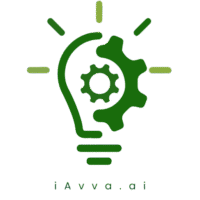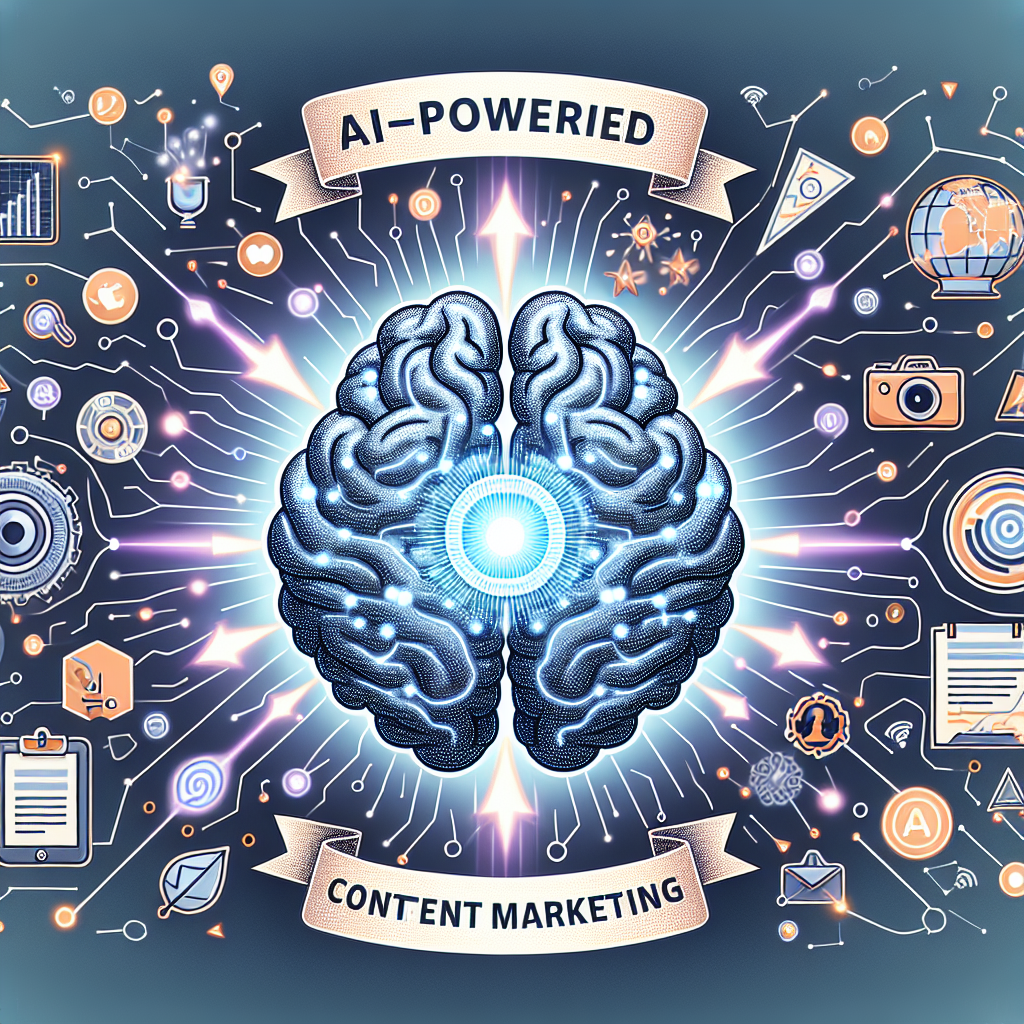In an era where technology is reshaping every facet of our lives, the education and corporate training sectors are no exception. Artificial Intelligence (AI) has emerged as a transformative force, revolutionizing how we learn, teach, and train. From personalized learning experiences to intelligent assessment tools, AI solutions are not just enhancing traditional methods; they are redefining them.
As we delve into the world of AI in education and corporate training, we uncover a landscape rich with potential, where data-driven insights and innovative technologies converge to create more effective learning environments. The integration of AI into education and corporate training is not merely a trend; it is a necessity in our fast-paced, information-driven society. With the rapid evolution of job requirements and the increasing demand for continuous learning, organizations and educational institutions must adapt to stay relevant.
AI solutions offer the ability to analyze vast amounts of data, identify learning patterns, and tailor experiences to meet individual needs.
Try iAvva AI coach app for free.
Key Takeaways
- AI solutions are revolutionizing education and corporate training by providing personalized learning experiences and improving learning outcomes.
- AI has a significant impact on learning and development by enabling adaptive learning, predictive analytics, and personalized recommendations.
- Personalized learning with AI technology allows for customized learning paths, adaptive content, and real-time feedback to meet individual learner needs.
- AI tools for assessing and monitoring learning progress offer insights into learner performance, engagement, and areas for improvement.
- Virtual reality and AI are transforming corporate training by providing immersive, interactive, and realistic learning experiences for employees.
The Impact of AI on Learning and Development
The impact of AI on learning and development is profound and multifaceted. One of the most significant advantages is the ability to analyze learner data in real-time. By leveraging machine learning algorithms, educational institutions can gain insights into student performance, engagement levels, and learning preferences.
This data-driven approach allows educators to make informed decisions about curriculum design and instructional strategies, ultimately leading to improved outcomes. For instance, a study by McKinsey & Company found that organizations that effectively utilize data analytics in their training programs can increase productivity by up to 20%. Moreover, AI facilitates adaptive learning environments that respond dynamically to the needs of learners.
Traditional one-size-fits-all approaches often leave many students behind or unchallenged. In contrast, AI-powered platforms can adjust the difficulty of content based on individual performance, ensuring that each learner receives a personalized experience. This adaptability not only enhances engagement but also fosters a growth mindset among learners, encouraging them to take ownership of their educational journeys.
Personalized Learning with AI Technology

Personalized learning is at the heart of AI’s transformative power in education and corporate training. By harnessing AI technology, educators can create tailored learning experiences that cater to the unique needs of each student or employee. For example, platforms like DreamBox Learning utilize AI algorithms to assess a learner’s understanding of mathematical concepts in real-time.
As students progress through lessons, the system adapts the content based on their performance, providing targeted support where needed. This level of personalization extends beyond academic subjects; it also encompasses soft skills development in corporate training. Companies like IBM have implemented AI-driven platforms that analyze employee performance data to recommend personalized training modules.
This ensures that employees receive the right training at the right time, ultimately leading to higher retention rates and improved job satisfaction. The ability to customize learning experiences not only enhances knowledge retention but also empowers learners to pursue their interests and career aspirations.
AI Tools for Assessing and Monitoring Learning Progress
| AI Tool | Features | Benefits |
|---|---|---|
| Auto-grading systems | Automated grading of assignments and tests | Save time for educators and provide instant feedback to students |
| Learning analytics platforms | Track student engagement and performance | Identify at-risk students and personalize learning experiences |
| Adaptive learning systems | Personalized learning paths based on student performance | Improve student outcomes by catering to individual learning needs |
Assessment is a critical component of any educational or training program, and AI tools are revolutionizing how we evaluate learning progress. Traditional assessment methods often rely on standardized tests that may not accurately reflect a learner’s understanding or capabilities. In contrast, AI-powered assessment tools can provide continuous feedback through formative assessments, quizzes, and interactive activities.
For instance, platforms like Gradescope utilize AI to streamline the grading process for educators. By automating the evaluation of assignments and exams, teachers can focus more on providing meaningful feedback rather than getting bogged down in administrative tasks. Additionally, these tools can identify common misconceptions among learners, allowing educators to address knowledge gaps proactively.
The result is a more efficient assessment process that enhances both teaching effectiveness and student learning outcomes.
Virtual Reality and AI in Corporate Training
The convergence of Virtual Reality (VR) and AI is creating immersive training experiences that were once thought impossible. In corporate training environments, VR simulations powered by AI can replicate real-world scenarios, allowing employees to practice skills in a safe and controlled setting. For example, companies like Walmart have implemented VR training programs for their employees to simulate customer interactions and improve service skills.
According to a study by PwC, employees who underwent VR training were four times more focused than their peers who received traditional classroom training. The combination of VR and AI allows organizations to create realistic training environments that adapt to individual performance levels, ensuring that employees are well-prepared for real-life challenges.
AI-Powered Content Creation and Curriculum Design

Creating high-quality educational content is a time-consuming process that often requires significant resources. However, AI-powered tools are streamlining content creation and curriculum design by automating various aspects of the process. For instance, platforms like Knewton leverage AI algorithms to analyze learner data and generate personalized content recommendations based on individual needs.
Moreover, AI can assist educators in designing curricula that align with industry standards and emerging trends. By analyzing labor market data and skill requirements, AI tools can help institutions develop programs that equip learners with the skills needed for future job opportunities. This proactive approach ensures that educational offerings remain relevant in an ever-changing job landscape.
The Role of Chatbots in Education and Training
Chatbots have emerged as valuable tools in both education and corporate training settings. These AI-driven virtual assistants can provide instant support to learners by answering questions, offering resources, and guiding them through complex topics. For example, Georgia State University implemented a chatbot named Pounce to assist students with enrollment processes and academic inquiries.
The result was a significant increase in student engagement and retention rates. In corporate training environments, chatbots can facilitate on-demand learning by providing employees with quick access to information and resources. This immediate support fosters a culture of continuous learning, where employees feel empowered to seek knowledge whenever they need it.
As organizations increasingly embrace remote work models, chatbots serve as essential tools for maintaining communication and support within teams.
AI Solutions for Language Learning and Translation
Language learning has been transformed by AI solutions that offer personalized experiences tailored to individual learners’ needs. Platforms like Duolingo utilize machine learning algorithms to adapt lessons based on user performance, ensuring that learners receive targeted practice in areas where they struggle. This personalized approach not only enhances language acquisition but also keeps learners engaged through gamified experiences.
Furthermore, AI-powered translation tools are breaking down language barriers in both education and corporate settings. Services like Google Translate leverage advanced algorithms to provide real-time translations, enabling seamless communication across diverse teams. This capability is particularly valuable in multinational organizations where collaboration among employees from different linguistic backgrounds is essential for success.
Ethical Considerations in AI Education and Training
As we embrace the potential of AI in education and corporate training, it is crucial to address the ethical considerations surrounding its implementation. Issues such as data privacy, algorithmic bias, and the potential for over-reliance on technology must be carefully navigated. Educational institutions and organizations must prioritize transparency in how they collect and use learner data while ensuring that AI systems are designed to be fair and inclusive.
Moreover, there is a growing concern about the potential displacement of educators and trainers due to automation. While AI can enhance teaching effectiveness, it should not replace the human element that is essential for fostering meaningful connections between educators and learners. Striking a balance between leveraging technology and maintaining human interaction will be key to ensuring that AI serves as a tool for empowerment rather than replacement.
The Future of AI in Learning and Development
The future of AI in learning and development holds immense promise as technology continues to evolve at an unprecedented pace. As we look ahead, we can expect even more sophisticated AI solutions that will further enhance personalized learning experiences. Innovations such as natural language processing will enable more intuitive interactions between learners and AI systems, making education more accessible than ever before.
Additionally, as organizations increasingly recognize the value of continuous learning in a rapidly changing job market, we can anticipate a surge in demand for AI-driven training solutions that adapt to evolving skill requirements. The integration of AI into lifelong learning initiatives will empower individuals to stay relevant in their careers while fostering a culture of curiosity and growth.
Case Studies: Successful Implementation of AI Solutions in Education and Corporate Training
To illustrate the transformative power of AI solutions in education and corporate training, let us examine two compelling case studies: one from an educational institution and another from a corporate environment. In the realm of education, Arizona State University (ASU) has successfully implemented an AI-driven platform called “Intelligent Adaptive Learning.” This system analyzes student data to provide personalized recommendations for courses and resources based on individual learning styles and performance metrics. As a result of this initiative, ASU has seen significant improvements in student retention rates—up by 10%—and overall academic performance.
On the corporate side, Unilever has embraced AI-powered training solutions through its “Unilever Future Leaders Programme.” By utilizing machine learning algorithms to assess employee performance data, Unilever has developed personalized training paths for its future leaders. This approach has led to increased employee engagement and accelerated career progression within the organization. These case studies exemplify how organizations across sectors are harnessing the power of AI to create more effective learning environments that drive success for both individuals and institutions alike.
In conclusion, the integration of AI solutions into education and corporate training is not just a trend; it is a paradigm shift that promises to redefine how we learn and develop skills for the future. By embracing these technologies thoughtfully and ethically, we can unlock new possibilities for personalized learning experiences that empower individuals to thrive in an ever-evolving world.
In the rapidly evolving landscape of education and corporate training, AI solutions are becoming increasingly pivotal. One notable development in this field is the use of AI-powered coaching tools that enhance learning experiences and improve training outcomes. A related article, “AI Coach Assist: An Automated Approach for Call,” explores how AI can be leveraged to provide automated coaching, offering personalized feedback and support to learners. This approach not only streamlines the training process but also ensures that learners receive tailored guidance, making it a valuable resource for both educational institutions and corporate environments.
FAQs
What are AI solutions for education and corporate training?
AI solutions for education and corporate training are technologies that use artificial intelligence to enhance learning and development processes. These solutions can include personalized learning platforms, virtual tutors, automated grading systems, and predictive analytics for performance improvement.
How do AI solutions benefit education and corporate training?
AI solutions can benefit education and corporate training by providing personalized learning experiences, automating administrative tasks, improving student and employee engagement, and offering insights for better decision-making. These solutions can also help identify areas for improvement and provide targeted support for learners.
What are some examples of AI solutions for education and corporate training?
Examples of AI solutions for education and corporate training include adaptive learning platforms, chatbots for student and employee support, virtual reality simulations for hands-on training, and predictive analytics tools for identifying learning gaps and performance trends.
Are AI solutions for education and corporate training widely used?
AI solutions for education and corporate training are increasingly being adopted by educational institutions and businesses. The global market for AI in education is expected to grow significantly in the coming years, indicating a growing interest and investment in these technologies.
What are the potential challenges of implementing AI solutions in education and corporate training?
Challenges of implementing AI solutions in education and corporate training can include concerns about data privacy and security, the need for proper training and support for users, and the potential for bias in AI algorithms. Additionally, there may be resistance to change and the need for careful integration with existing systems and processes.










Leave a Reply